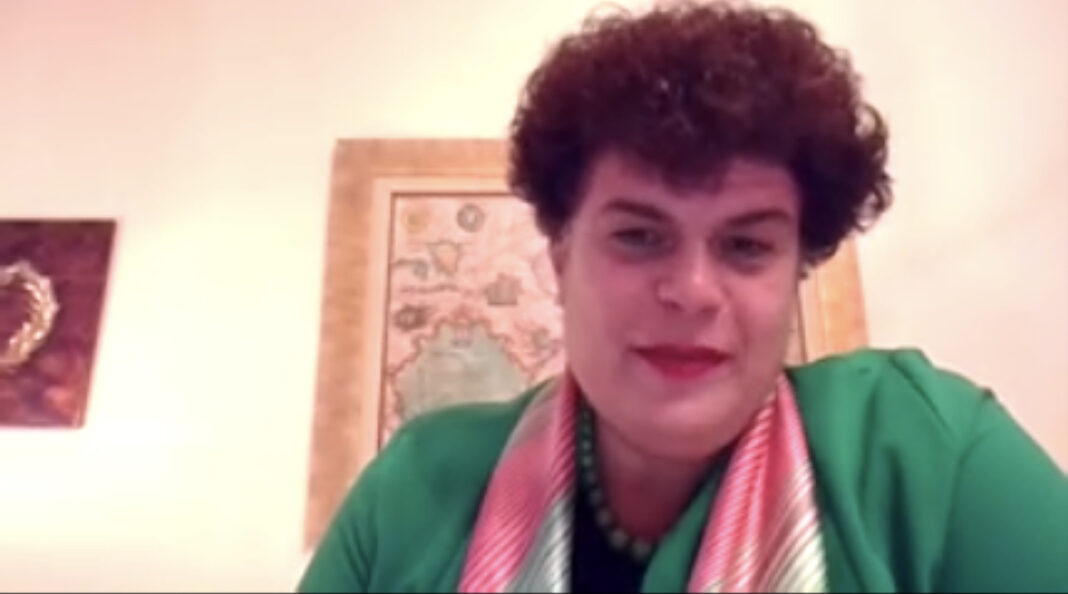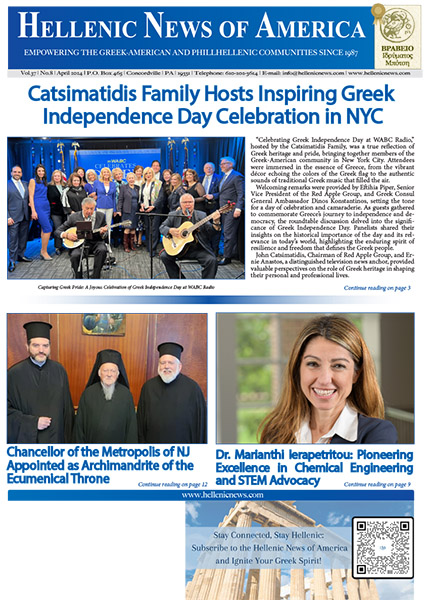By Catherine Tsounis
“The Office of Greek Education is organizing the second seminar in a series of eight educational events. This seminar, the second in the series, will explore innovative teaching methods and different ways of teaching, with a focus on religion, customs, and the traditions of the Holy Twelve Days (Christmas – New Year – Lights),” said Dr. Anastasios Koularmanis, Director of Greek Education at the Greek Orthodox Archdiocese of America.
An interactive Zoom seminar, broadcasted across America, featured Dr. Angeliki Mastromihalaki, with support from her colleagues. Mrs. Athena Kromidas, President of the High Council for Greek Education in the U.S., welcomed and congratulated Dr. Angeliki Mastromihalaki and her colleagues on the presentation.

One key point emphasized the difference between St. Basil’s Day, when gifts are presented to children, and St. Nicholas, the modern Santa Claus, celebrated at Christmas. “This is our Greek Orthodox heritage that must be remembered,” said Dr. Mastromihalaki. The Greek, affluent cities of Asia Minor (Western Anatolia) have been wiped out, but they are remembered in customs such as St. Basil’s vasilopita and his tradition of bringing gifts to children.
Who was St. Basil? He was not a politician like our American leaders. Instead, he gave away his wealth to help his community. St. Basil was appointed Bishop of Cappadocia in Caesarea and was the first to establish orphanages, hospitals, and aged-care homes. St. Basil didn’t receive any tax write-offs or glorification by public relations companies. He was a kind individual who used his influence and wealth to help all, without any strings attached. This tradition originated in the Byzantine Empire, which lasted for over a thousand years.
During a catastrophic depression, the emperor imposed an excessive tax on the people of Caesarea, forcing them to hand over their valuables, including coins and jewelry, to avoid imprisonment. On hearing of this injustice, St. Basil came to the defense of his people. The emperor repented of his actions and instructed the tax collectors to hand over all the wealth to St. Basil.

Faced with the dilemma of not knowing who had contributed what, St. Basil returned each person’s valuables by having them baked into a huge ‘pita.’ After the Divine Liturgy, he blessed the pita, and each person’s slice miraculously contained the money or jewels they had contributed. In remembrance of this miracle, Orthodox Christians bake the Vasilopita on St. Basil’s feast day, January 1st, the date on which he reposed.
Teaching methodology, theater, music, and creative projects were explained by Dr. Mastromihalaki as part of the instruction for the Greek Orthodox 12 Days of Christmas curriculum. For more information, please contact Director Dr. Anastasios Koularmanis at [email protected].







